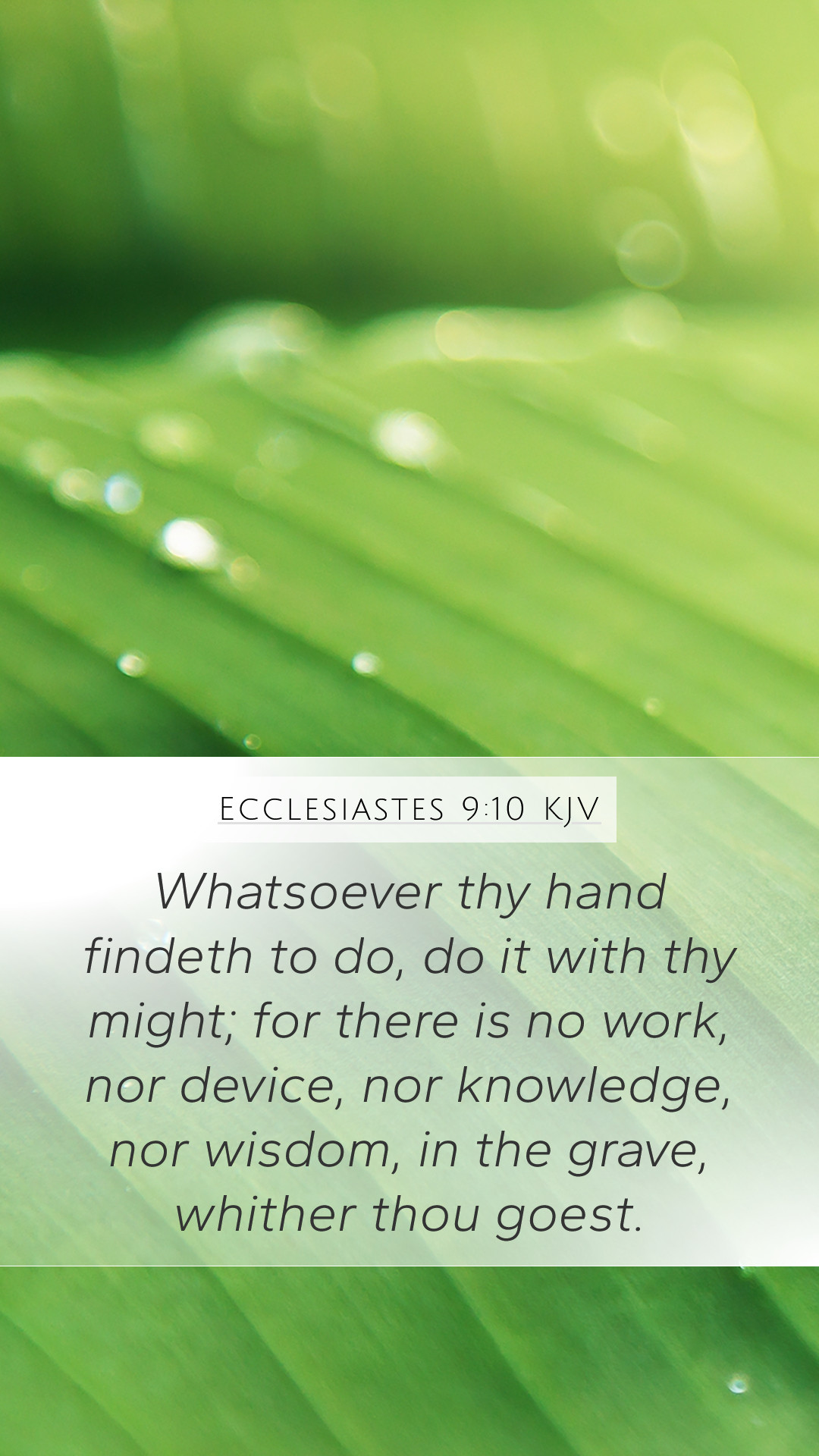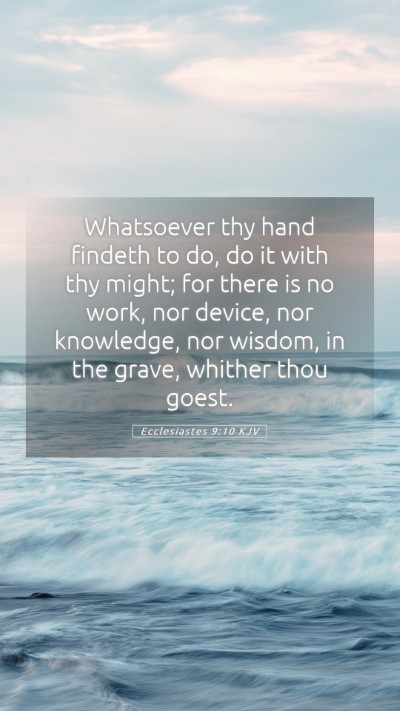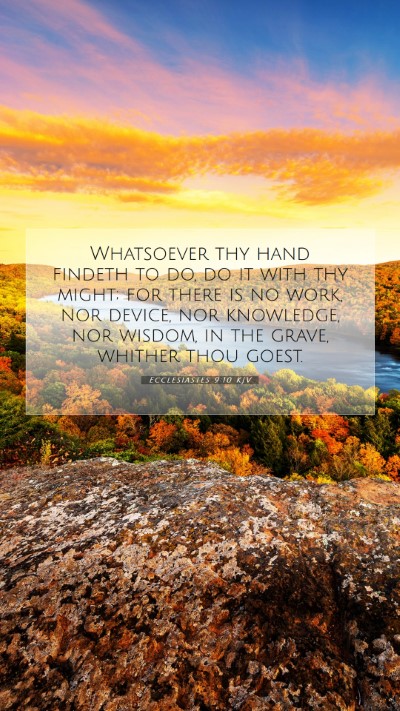Bible Verse Commentary: Ecclesiastes 9:10
Verse: “Whatever your hand finds to do, do it with your might; for in the realm of the dead, where you are going, there is neither working nor planning nor knowledge nor wisdom.” (Ecclesiastes 9:10, NIV)
Introduction to Biblical Exegesis
This verse from the Book of Ecclesiastes underscores a fundamental biblical principle: the importance of engaging fully in our tasks while we have the opportunity. It serves as both a motivation for diligent work and a sobering reminder of the finite nature of life. Through a synthesis of insights from various public domain commentaries, we can gain a comprehensive understanding of this scripture.
Understanding the Context
The Book of Ecclesiastes, traditionally attributed to King Solomon, reflects on the meaning of life and the human condition. Throughout the text, the author grapples with the apparent futility of existence, often concluding that life is transient and enigmatic. Ecclesiastes 9:10 should be viewed within this broader discourse on the limitations of human endeavor.
Analysis from Commentaries
-
Matthew Henry’s Commentary
Henry emphasizes the urgency conveyed in this verse—exhorting believers to seize the day. He notes that the phrase “whatever your hand finds to do” indicates a broad scope of work, encompassing both spiritual and temporal tasks. Henry concludes that since life is fleeting, we must dedicate ourselves fully to all we undertake, achieving our tasks with vigor and commitment.
-
Albert Barnes’ Commentary
Barnes delves into the motivational aspect of the verse. He suggests that the call to action—doing everything "with your might"—implies a sense of urgency in fulfilling one's purpose. His interpretation also reinforces the inevitability of death, which marks the end of all earthly endeavors. Thus, for Barnes, a wise individual focuses on maximizing their potential while alive.
-
Adam Clarke’s Commentary
Clarke highlights the contrast between the vibrancy of life and the silence of death. He points out that the realm of the dead is devoid of any activity or intention, further driving home the necessity of action while one is alive. Clarke encourages readers to contemplate the ephemeral nature of existence and to live with intention and purpose in their daily lives.
Significance of the Verse
Ecclesiastes 9:10 serves as a poignant reminder of the human condition and the inevitability of death. The urgency to act while one has the chance highlights the fleeting moments of life—prompting reflection on how we allocate our time and energy.
Application of Scripture
When considering how to incorporate this verse into daily life, one might reflect on the following:
- Maximize Opportunities: Engage fully in tasks and relationships, treating each moment as significant.
- Live with Purpose: Identify what is truly important and devote your energy to those pursuits.
- Consider Legacy: Reflect on how your actions today impact your legacy and the lives of others.
Cross References
This verse resonates with several other biblical passages that speak to the themes of work, purpose, and the transient nature of life:
- Colossians 3:23: “Whatever you do, work at it with all your heart, as working for the Lord, not for human masters.”
- Psalm 90:12: “Teach us to number our days, that we may gain a heart of wisdom.”
- Proverbs 16:3: “Commit to the Lord whatever you do, and he will establish your plans.”
Conclusion
In summary, Ecclesiastes 9:10 is a profound exhortation to recognize the valuable time we have on earth. Commentators such as Matthew Henry, Albert Barnes, and Adam Clarke provide rich insights that enhance our Bible verse understanding and Bible verse explanations. By following the teachings in this verse, we allow ourselves to live more intentionally, maximize our God-given potential, and embrace the challenges of life with vigor. This understanding encourages believers to engage deeply in their daily actions and to make wise choices that reflect their aspirations and values.


